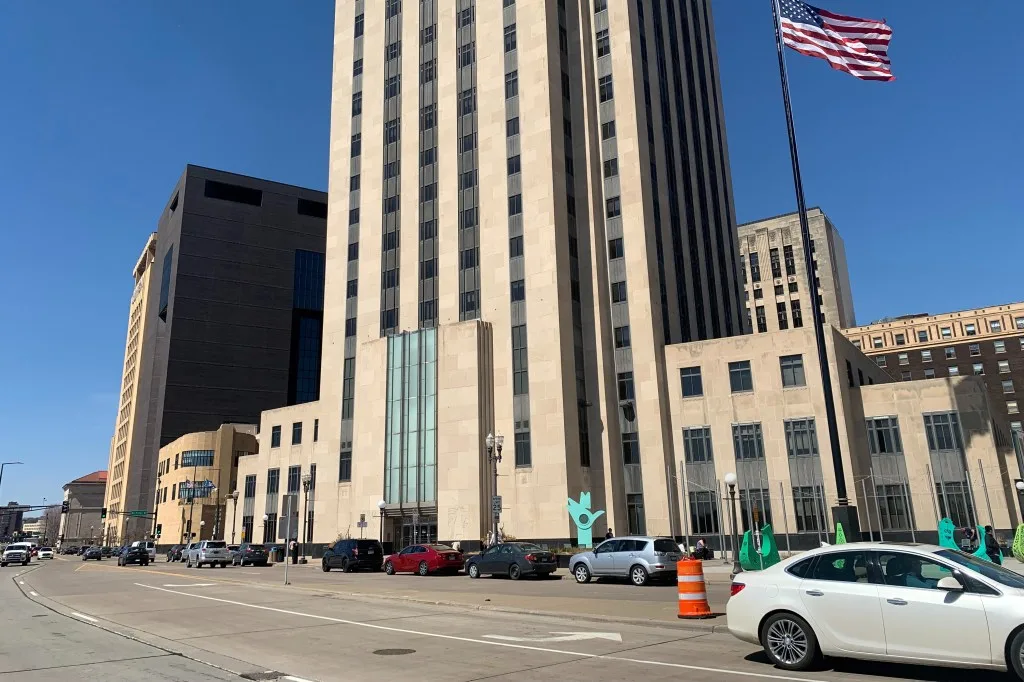
For months last year and the year before, a committee assembled by the St. Paul City Council explored the concept of racial reparations. Could there be a role for local government in righting race-based historical wrongs?
Following the recommendations of the committee, the seven-member council voted unanimously in January to take things two steps further, assembling a long-term reparations commission under their auspices, with a city staffer assigned to help dig deeper into how reparations might be structured.
On Tuesday morning, with the city’s new reparations commission still in its infancy, some leading proponents of the idea stood outside City Hall to protest an initial staffing decision — the hiring of Jennifer “JLor” Lor to lead its work as the commission’s sole dedicated staffer and policy analyst.
The problem, they said, is that Lor, who has served as a legislative aide to City Council Member Nelsie Yang, is Hmong. The job, they said, should go to someone who is Black, someone who can trace their family history back to the atrocity of chattel slavery, and preferably a descendant of the city’s historically-Black Rondo neighborhood, which was torn up by construction of Interstate 94 in the 1960s. As a daughter of Hmong refugees, Lor’s family history has its own complexities, but they said it reflects none of the above.
“We are opposing her to be hired to represent us,” said Tyrone Terrill, president of the African American Leadership Council, in an interview. “This is a reparations process for Black people. There are numerous African American applicants — even from Rondo — who applied for the job and did not get the job. It’s an insult to us. … Be respectful.”
Terrill said commission members learned of the city council’s decision to hire Lor a week ago Thursday night.
Protest
By Monday evening news had trickled through St. Paul’s Black leadership circles. On Tuesday morning, some 15 to 20 protestors — including Ramsey County Commissioner Rena Moran and School Board Member Chauntyll Allen, an organizer with Black Lives Matter Twin Cities — stood on Kellogg Boulevard, outside downtown City Hall, to demand that the city council reconsider.
Moran later gave tearful remarks to the county board, explaining her own journey as a Black woman from homelessness to elected office.
“African Americans have suffered from generations of harm and a descendent of slavery should be the face of reparations locally and nationally,” said Moran, in a written statement announcing the protest. “We are the storytellers of our lives. It’s imperative that we are the ones that create our narrative and the results.”
Calls to Council President Amy Brendmoen and Nelsie Yang were not returned Tuesday. A spokesman for the mayor’s office said the mayor had no role in the hiring decision, which was a product of the council, and was just learning the details.
Reactions
Council Member Jane Prince, a leading organizer of the initial reparations committee, was out of state but issued a statement late Tuesday night, calling Lor “a smart, talented and highly capable professional” but acknowledging “the council fumbled its first reparations test by our failure to recognize the African American community’s investment in a representative process. With the commission seated and able to advise the selection process moving forward, we now have the opportunity to try to earn the community’s confidence.”
Trahern Crews, who had served on the city’s reparations committee and now serves on the commission itself, attended the gathering outside City Hall but said later he would have preferred a more subtle approach. Crews had also applied for the staffing position that went to Lor.
“She seems well-meaning,” said Crews, who recently met with Black staffers from reparations commissions assembled by Los Angeles, the state of Illinois, the city of Asheville, North Carolina and other communities. “I just don’t think she was qualified. You need to be able to hit the ground running with it. It’s not about her. We’ve been working on this for three or four years. I’m trying to be neutral.”
The commission members had previously asked the city to set aside upwards of $2 million in American Rescue Plan funding for reparations programming, Crews said. That didn’t happen, but the city found enough money to hire a staffer — Lor.
“The only money for reparations is going to go to a non-Black person,” Crews said. “I don’t think that’s right.”
When it comes to embracing reparations planning, “all of the city council members have been courageous throughout this whole process by doing this,” he added. “It’s just when we start talking about dollars and cents, that’s when it gets serious.”

